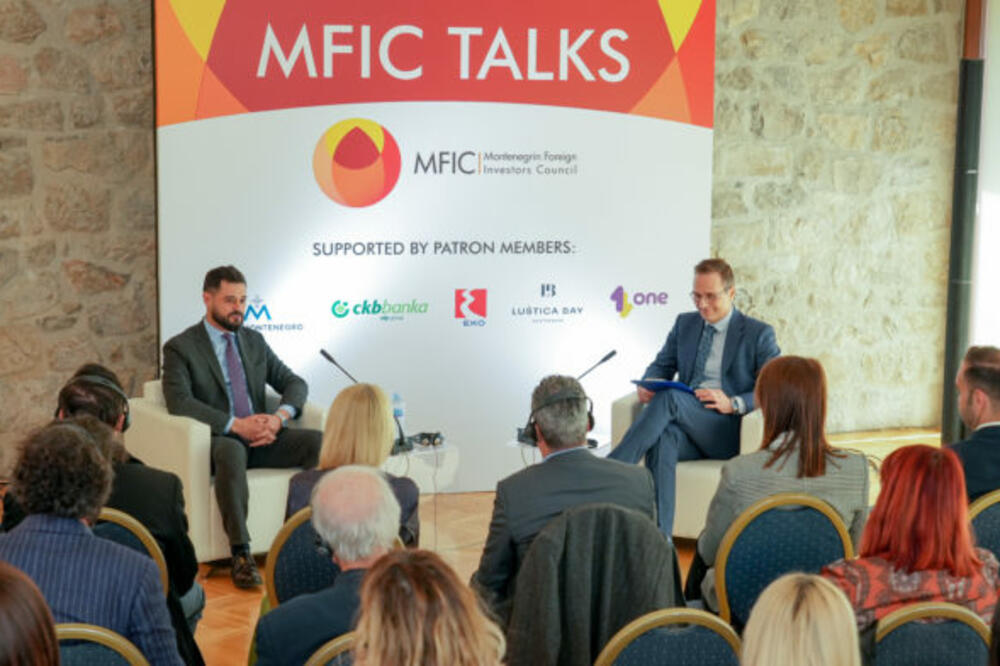The implementation of reform processes and the introduction of a greater degree of digitization with the mission of simple and efficient tax collection, through a strong, modern and efficient Tax Administration (TA), will contribute to the improvement of the business environment, said the acting director of that institution, Sava Laketić.
He participated in the first MFIC Talks event organized by the Council of Foreign Investors (SSI) in Montenegro.
The panel was an opportunity to start a dialogue and exchange opinions on topics and challenges facing foreign investors and the business community.
The moderator of the panel was the president of the Council, Tamaš Kamaraši, who assessed that MFIC Talks is a concept that should improve the communication of Council member companies with representatives of decision makers.
"The goal is to start a dialogue on topics that are important for foreign investors and for the entire business community. I would like to thank our patron members who supported the organization of the MFIC Talks event - the companies One Crna Gora, Jugopetrol, Adriatic Marinas - Porto Montenegro, Luštica Bay and Crnogorska komercijalna banka (CKB)", said Kamaraši.
When asked what are the key barriers in tax policy, Laketić replied that the key problem in the earlier period was the unpredictability of the tax system, the lack of constant and quality communication.
"We will continue to work proactively and the intention is to improve communication between the institutions of the system," added Laketić.
He stated that PU is not digitized to a sufficient extent.
"We will soon sign a memorandum with the Association of Banks, where we will connect banks and PU at the level of the IT system, which will significantly speed up the loan approval process, increase trust in that documentation, which until now was submitted in writing and was subject to abuse," announced Laketić.
Laketić said that, as far as the payment of taxes is concerned, they had individual discussions with the banks.
"We discussed the possibility of opening an additional account in PU with the banks that have introduced direct payment transactions with Serbia and Bosnia and Herzegovina (BiH). However, one part of the tax is not within the jurisdiction of the PU, namely the real estate tax, which is within the scope of local administrations. We will be a mediator between local administrations and banks, so we will help bring that process to an end," specified Laketić.
He also stated that they contacted certain internet platforms for short-term accommodation rentals, which they recognized as a gray area.
"In addition to the fact that there is a part of the economy that wants to avoid paying taxes, we recognized that there are those in that segment who would like to pay taxes, but have no way. We are already in communication with internet platforms, in order to get the report and implement the registry. First the rental of accommodation, and then they found the easiest way to pay the tax electronically", said Laketić.
When asked what he would consider his greatest success at the end of his mandate, Laketić answered that it was reaching the required level of professionalization of the PU and approaching the standards of EU countries.
He emphasized that one of the goals is to create an attractive tax climate through a transparent business environment, based on the rule of law and respect for legal frameworks and procedures, which contributes to a greater degree of voluntary compliance with tax regulations and efficient tax collection.
Bonus video:




